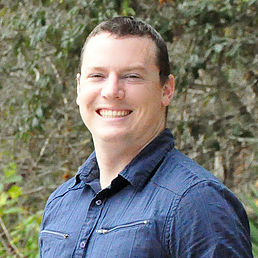Let’s talk about Diagnosing PTSD
Post-traumatic stress disorder (PTSD) is a mental health condition that can follow traumatic events. Symptoms may begin immediately following the traumatic event, or may appear and worse gradually over time, slowing eroding a person’s ability to function.
The goal of this article is to discuss the symptoms of PTSD as well as the process for accurately diagnosing PTSD. If you are wondering if you have PTSD, or if your symptoms suggest a diagnosis of PTSD, it is critical to see a mental health professional to verify your diagnosis and to discuss your treatment options. I’ll talk about treatment options a little later.

PTSD is different than stress.
This is a very important fact that needs to be addressed upfront. Stress, as we frequently talk about it, generally refers to emotional or physical tension. Stress can be associated with many different day-to-day events, thoughts, or situations, and in short, bursts can be helpful or adaptive depending on the situation[1].
Another incorrect notion is that everyone who experiences traumatic events will then experience PTSD. Only a small majority of individuals who experience traumatic events go on to develop PTSD. After a traumatic event, it is normal to have feelings of anxiety, sadness, or distress.
Those you experience traumatic events may also have nightmares or memories about the event which are common in PTSD are generally considered normal during the first 4-weeks or so after a traumatic event. If you experienced a traumatic event and have these symptoms, they do not necessarily mean that you have PTSD. Many of the signs and symptoms of PTSD are part of the body’s normal response to stress. Having these symptoms alone does not mean you have PTSD.
There are very specific requirements that must be met when diagnosing PTSD for a formal diagnosis. These requirements are detailed in the 5th edition of the Diagnostic and Statistical Manual of Mental Disorders (DSM-5)[2]. These symptoms are as follows:
DSM-5 Criteria for PTSD
Criterion A: Stressor
Exposure or threat of death, serious injury, or sexual violence in one or more of the following ways:
- You directly experienced the event.
- You witnessed the event happen to someone else, in person.
- You learned of a close relative or close friend who experienced an actual or threatened accidental or violent death.
- You had repeated indirect exposure to distressing details of the event(s). This could occur in the course of professional duties (first responders, collecting body parts, or professionals repeatedly exposed to details of child abuse). This does not include indirect non-professional exposure through electronic media, television, movies, or pictures.
Criterion B: Intrusion Symptoms
The traumatic event is persistently re-experienced in one or more of the following ways:
- Recurrent, involuntary, and intrusive memories. Children older than six may express this symptom through repetitive play in which aspects of the trauma are expressed.
- Traumatic nightmares or upsetting dreams with content related to the event. Children may have frightening dreams without content related to the trauma.
- Dissociative reactions, such as flashbacks, in which it feels like the experience is happening again. These may occur on a continuum ranging from brief episodes to complete loss of consciousness. Children may re-enact the events while playing.
- Intense or prolonged distress after exposure to traumatic reminders.
- Marked physiological reactivity, such as increased heart rate, after exposure to traumatic reminders.
Criterion C: Avoidance
- Persistent effortful avoidance of distressing trauma-related reminders after the event as evidenced by one or both of the following:
- Avoidance of trauma-related thoughts or feelings.
- Avoidance of trauma-related external reminders, such as people, places, conversations, activities, objects, or situations.
Criterion D: Negative Alterations in Mood
- Negative alterations in cognitions and mood that began or worsened after the traumatic event as evidenced by two or more of the following:
- Inability to recall key features of the traumatic event. This is usually dissociative amnesia, not due to head injury, alcohol, or drugs.
- Persistent, and often distorted negative beliefs and expectations about oneself or the world, such as “I am bad,” or “The world is completely dangerous.”
- Persistent distorted blame of self or others for causing the traumatic event or for the resulting consequences.
- Persistent negative emotions, including fear, horror, anger, guilt, or shame.
- Markedly diminished interest in activities that used to be enjoyable.
- Feeling alienated, detached or estranged from others.
- Persistent inability to experience positive emotions, such as happiness, love, and joy.
Criterion E: Alterations in Arousal and Reactivity
- Trauma-related alterations in arousal and reactivity that began or worsened after the traumatic event, including two or more of the following:2
- Irritable or aggressive behavior
- Self-destructive or reckless behavior
- Feeling constantly “on guard” or like danger is lurking around every corner (hypervigilance)
- Exaggerated startle response
- Problems in concentration
- Sleep disturbance
Criterion F: Duration
Persistence of symptoms in Criteria B, C, D, and E for more than one month.2
Criterion G: Functional Significance
Significant symptom-related distress or impairment of different areas of life, such as social or occupational.2
Criterion H: Exclusion
The disturbance is not due to medication, substance use, or other illness.2
Diagnosing PTSD in DSM-5
Per DSM-5, you need to meet the following criteria for a formal diagnosis of PTSD.
Criterion A
- One symptom or more from Criterion B
- One symptom or more from Criterion C
- Two symptoms or more from Criterion D
- Two symptoms or more from Criterion E
- Criterion F
- Criterion G
- Criterion H
Changes in Diagnostic Criteria
PTSD criteria have changed since the previous DSM(DSM-IV-TR). These changes include.
More specific and expanded Criterion A.
Further clarifying symptoms clusters. Avoidance was moved into a new Cluster.
Three additional symptoms were identified, and others were reworded.
Acute and Chronic are no longer required specifiers for PTSD, and a specifier was added for dissociative symptoms.
Perhaps the largest shift in PTSD was its removal from the Anxiety Disorders classification. Instead, PTSD now falls within a new category, called “Trauma and Stressor-Related Disorders”, which also includes Acute Stress Disorder, among others.
Tools for Diagnosing PTSD
The DSM-5 is essentially a comprehensive encyclopedia for mental health disorders. The process of assessing PTSD requires evidence-based tools. A psychological evaluation is usually required. This evaluation gives you a chance to discuss your experience and how they relate to the distressing or problematic symptoms you are experiencing.
They may ask you to complete questionnaires or structured interviews that ensure a complete history is taken. While these interviews might feel impersonal, they assist the clinician in making sure all aspects of your experience relevant to PTSD are explore, and provide great benefit during the treatment planning process. You can also look at the PTSD Checklist for DSM-5, which we’ve provided here. While helpful in assessing symptoms of PTSD, the PCL-5 does not replace a psychological evaluation.
They may also ask specific questions about how your symptoms have progressed or been affected by other events going on in your life, or how they overlap with any medical history you might have. This comprehensive assessment helps medical providers and mental health professionals better understand your experience and formulate treatment needs. Finally, they can provide or refer you to an appropriate level of care.
When do I need to see a professional?

PTSD can make living, working, and interacting with other people very difficult. Sometimes, you might even feel like it is impossible. Many people experiencing intense symptoms of PTSD may turn to problematic coping strategies. These unhealthy strategies might include drug use, self-harm, or avoidance, which often appear to offer an escape from either their symptoms or reminders of their traumatic experience.
If it has been less than a month since the traumatic event, and you are experiencing symptoms, while uncomfortable and distressing, these symptoms are a normal response to extreme situations. After all, when you are fighting with constant nightmares, flashbacks, and negative or anxious thoughts, you might wonder if things will ever get better.
Finding a qualified professional to help can make all the difference. There are several evidence-based therapies for PTSD, which can improve coping skills and reduce negative or anxious thoughts, among other problematic symptoms associated with PTSD.
Bringing back hope through the sharing of your experiences and helping you learn healthy, effective ways of coping.
Time is not a cure.
Sometimes, people believe that PTSD will just go away. Distressing symptoms can indeed reduce with time, and this can happen for some people—but not for everyone. 13-15% of the population develop PTSD in response to traumatic events[3]. Identifying and diagnosing PTSD as early as possible allows you to start effective treatment.
You may experience symptoms long after the traumatic event has taken place, making it difficult to associate your symptoms with PTSD.
Even if months or years have passed, it can be helpful for you to speak with a qualified professional to gain an accurate understanding of what is happening for you and be connected with appropriate resources that can help you regain your quality of life.
Related Conditions
PTSD has a significant symptom overlap with other mental health conditions[4]. Generalized Anxiety Disorder, Depression, or Specific Phobias could all mimic some of the symptoms of PTSD. It’s incredibly important that these other mental health conditions are ruled out, as treatment planning relies on an accurate diagnosis.
It is critical to talk with a qualified professional for help accurately diagnosing PTSD so that you are provided with appropriate resources for care and treatment. The Department of Veteran’s Affairs also has an excellent tool to help you or your loved one explore treatment options.
If you like to talk to us about diagnosing PTSD or starting treatment, please contact us to set up an appointment.
References
- Folkman, S. and J.T. Moskowitz, Stress, positive emotion, and coping. Current directions in psychological science, 2000. 9(4): p. 115-118.
- Association, A.P., Diagnostic and statistical manual of mental disorders (DSM-5®). 2013: American Psychiatric Pub.
- Kilpatrick, D.G., et al., National estimates of exposure to traumatic events and PTSD prevalence using DSM‐IV and DSM‐5 criteria. Journal of traumatic stress, 2013. 26(5): p. 537-547.
- Galatzer-Levy, I.R. and R.A. Bryant, 636,120 ways to have posttraumatic stress disorder. Perspectives on psychological science, 2013. 8(6): p. 651-662.
- Which Therapy is Best? - December 14, 2023
- How to deal with Burnout when you’re sick of everything and everyone. - February 23, 2022
- The Hidden Dangers of Social Media: How It Can Eat Away at Your Mental Health - August 21, 2021









